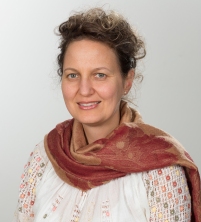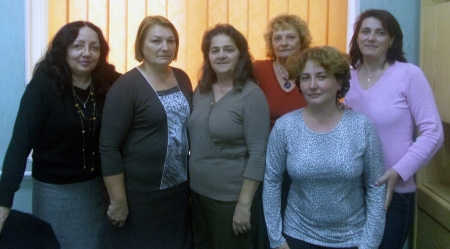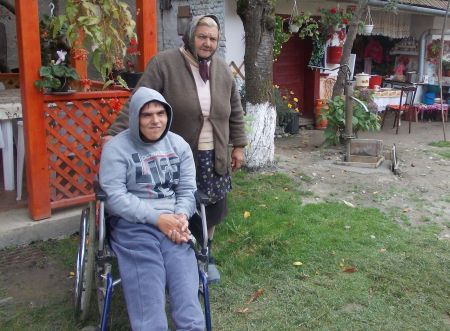HOSPICE Casa Sperantei – reaching the scattered homes
HOSPICE Casa Sperantei provides palliative care in Brasov and Bucharest and in two rural communities in Romania, caring for more than 2,600 patients annually (adults and children). Cristina Ghiran, Patient Services Director in Brasov, explains how the hospice team supports patients and families in rural communities.
If you want to make God laugh, show Him your plans. Sixteen years
ago, when a nurse friend of mine decided she would work for a hospice, I
said: “ How can you? I could never imagine myself working in a
hospice.” But God works in many ways; one year later I found myself
volunteering with patients who were having cancer surgery and I felt as
if I belonged there. Then, I discovered a wonderful world when I joined
HOSPICE Casa Sperantei: a world full of life, hope, emotions that were
expressed freely in so many ways, love, a genuine attitude of caring,
and a first-class professional team, working in harmony for the
wellbeing of patients and their families.
Palliative care is provided in many different settings but the most privileged, and also challenging from a professional point of view, is that of home care – a place where you can see ‘the big picture’ and you are challenged to bring the warmth you find in the hospice into patients’ homes.
In a rural area, patients can be quite isolated, either because of
the long distances to any available support or sometimes because of
cultural reasons. For example, in some regions it is still considered
that a chronic illness should be hidden. Furthermore, travelling long
distances to get a specialist’s opinion and treatment is sometimes seen
as a last resort when the disease is very advanced. Seeing the needs of a
rural community, HOSPICE Casa Sperantei started a successful pilot
project in 2008. The project in Fagaras and Zarnesti has continued and
nowadays the rural teams care for 80 adults and 19 children. Patients
receive a monthly average of 160 nurse visits and 80 doctor visits, as
well as social support and, if necessary, they can be admitted to the
hospice inpatient unit in Brasov for symptom control, respite or
terminal care. We hope that through the Mobihope project (funded by the
Vodafone Foundation within the Mobile for Good Global Programme), our
patients in Fagaras and Zarnesti will soon have an out of hours helpline
with their files accessible electronically to the team in Brasov.
Adrian’s story
Adrian is 21 years old and suffering from cerebral palsy; he was born prematurely to a 17-year-old and spent his first four years in an orphanage. His mother then took him home to a village 15 km away from Fagaras where, with her own mother’s help, she took care of him.
Adrian is 21 years old and suffering from cerebral palsy; he was born prematurely to a 17-year-old and spent his first four years in an orphanage. His mother then took him home to a village 15 km away from Fagaras where, with her own mother’s help, she took care of him.
We first saw Adrian a few years ago; he
was isolated and in bed, but happy to meet new people. His mother was
hardly coping with his care and all the expenses, as she did not receive
the legal financial benefits she was entitled to.
Being there for them, we learned from
them and we taught them. We learned how somebody can regain their smile,
how people can be thankful despite their poor situation; and by helping
the mother and grandmother in their efforts to care for Adrian and
teaching them ways of doing this, we empowered the family to achieve
their potential. We helped them to obtain benefits that included money,
as well as a suitable wheelchair for Adrian; and we helped him to go out
and enjoy meeting other people, and being himself.
The mission of the hospice team is to
rebuild a world shattered by disease. Our specialists reach out to bring
comfort and hope to those experiencing a frightening diagnosis by
providing good symptom control, nursing care and empowering patients and
families through education, social integration and support.
Links and resources…
- HOSPICE Casa Sperantei (in Romanian and English).
- Click here to read other posts on the EAPC blog about the work of HOSPICE Casa Sperantei.
- Key papers on palliative care in 23 languages – including five in Romanian – are now available to view or downlo



No comments:
Post a Comment